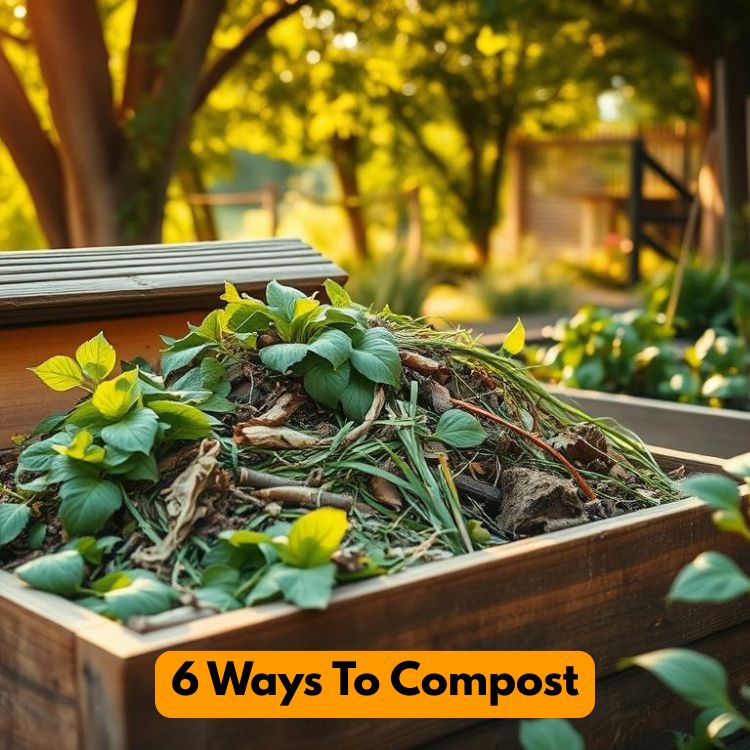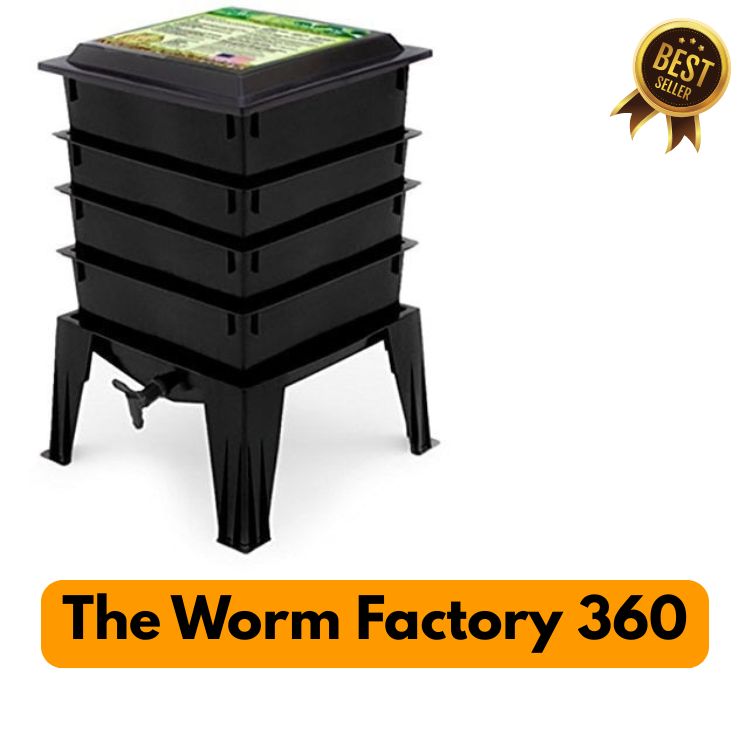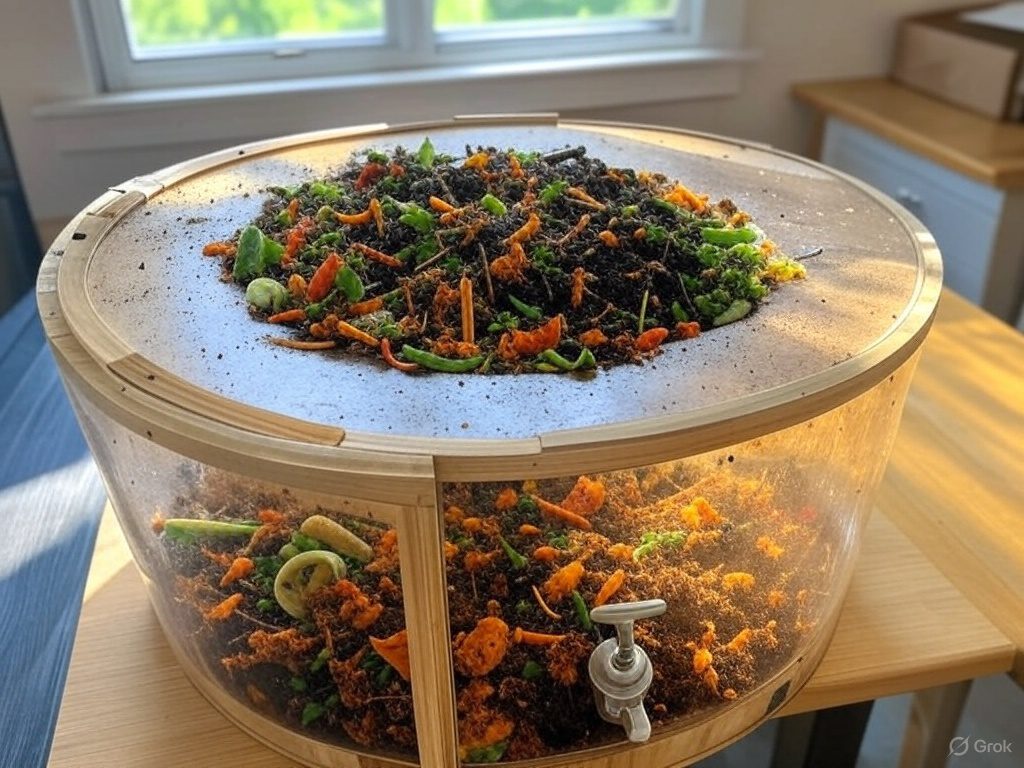Composting 101: Turning Waste into Garden Gold
Have you ever wondered how to turn your kitchen scraps into something beneficial for your garden?
Composting, a fascinating cycle of life, may be simpler than you think. When I started gardening, like many, I had no clue about composting either.
Let’s demystify the process and discover six methods that can fit any lifestyle.
The Basics of Composting: What and Why
Have you ever wondered what composting is all about?
Maybe you’ve heard the term tossed around in gardening circles, but you’re not quite sure what it entails.
Well, you’re in the right place! Let’s dive into the basics of composting and uncover why it’s such a valuable practice for both your garden and the environment.
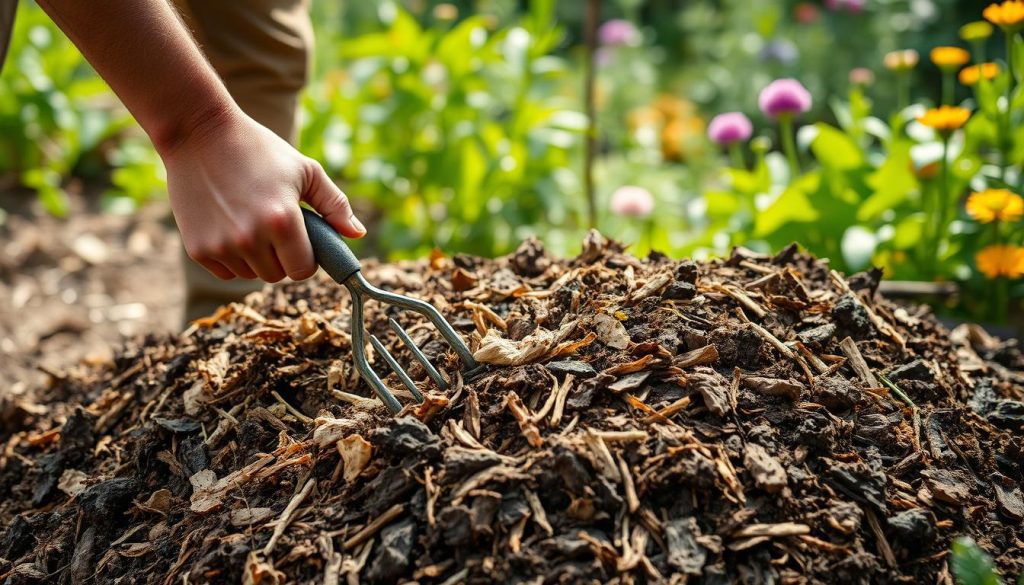
What is Composting?
Composting is the process of breaking down organic matter, like food scraps and yard waste, into a nutrient-rich material that can be used to improve soil.
It’s a natural process that involves the decomposition of organic materials by bacteria, fungi, and insects.
Think of it as nature’s way of recycling.
Why Compost?
So, why should you consider composting? Here are a few compelling reasons:
- Improves Soil Nutrients: Composting enhances the nutrient content of your soil. When you add compost to your garden, it provides essential nutrients that plants need to thrive. This nutrient boost is crucial for healthy plant growth.
- Increases Water Retention: Compost helps your soil retain water more effectively. This is especially beneficial in areas with clay soil, where water retention can be a challenge. By adding organic matter, your soil becomes more capable of holding moisture, reducing the need for frequent watering.
- Environmentally-Friendly: Composting is an eco-friendly way to recycle waste. Instead of sending organic waste to the landfill, where it contributes to methane emissions, you can turn it into valuable compost for your garden.
The Decomposition Process
The magic of composting lies in the decomposition process.
When you start a compost pile, you’re essentially creating a habitat for a diverse community of microorganisms and insects.
These tiny creatures work tirelessly to break down organic matter into compost.
Bacteria are the primary decomposers in a compost pile. They consume organic material and release nutrients back into the soil.
Fungi and insects also play a crucial role in breaking down tougher materials like woody stems and leaves.
It’s a fascinating process that transforms waste into a valuable resource.
Organic Matter: The Key to Nutrient-Rich Soil
Organic matter is the backbone of nutrient-rich soil. When you add compost to your garden, you’re enriching the soil with organic material that improves its structure and fertility.
This, in turn, supports healthy plant growth and enhances the overall health of your garden.
As Kevin Espiritu, a gardening enthusiast, once said,
“When I started gardening, I didn’t understand either what compost was or how to make it.”
It’s a journey of discovery, and once you understand the benefits of composting, you’ll wonder how you ever gardened without it.
How to Get Started with Composting
Ready to start composting? Here’s a simple guide to get you going:
- Choose a Composting Method: There are various methods to compost, such as using a compost bin, pile, or tumbler. Choose the one that suits your space and lifestyle.
- Collect Organic Waste: Gather kitchen scraps like fruit and vegetable peels, coffee grounds, and eggshells. Yard waste like leaves and grass clippings are also great additions.
- Layer Your Compost: Alternate layers of green materials (high in nitrogen) and brown materials (high in carbon) to create a balanced compost pile.
- Maintain Your Pile: Turn your compost regularly to aerate it and speed up the decomposition process. Keep it moist but not soggy.
- Harvest Your Compost: In a few months, you’ll have dark, crumbly compost ready to enrich your garden soil.
Composting is a rewarding practice that benefits both your garden and the environment.
By understanding the basics of composting, you can transform waste into a valuable resource and contribute to a healthier planet.
So, why not give it a try? Your garden will thank you!
Exploring Six Composting Methods
Are you ready to dive into the world of composting? It’s a fascinating journey where you can turn waste into a gardener’s treasure.
Let’s explore six different methods, each with its own unique benefits and challenges.
Whether you’re a seasoned gardener or a curious beginner, there’s a composting method for you.

1. Hot Composting
Hot composting is like the fast lane of composting. It’s rapid, efficient, and produces a large volume of compost in a short time.
But, it comes with a catch: more management. You need to keep an eye on the temperature, which should be between 110-160°F.
Why? Because this heat helps break down the materials quickly.
To get started, aim for a compost pile that’s about 3’x3’x3′ in size. This size helps maintain the heat needed for rapid decomposition.
Remember, the carbon-to-nitrogen (C/N) ratio should be around 30:1.
This balance is crucial for the microbes to thrive and do their job efficiently.
“Faster, the benefit is more volume, but the downsides are that there’s quite a bit to manage.” – Kevin Espiritu
2. Cold Composting
If hot composting sounds too intense, cold composting might be your style. It’s slower and requires less management.
Think of it as nature’s way of decomposing. Just pile up your organic waste and let it decompose over time.
It’s a hands-off approach, perfect for those who prefer a more laid-back method.
Cold composting mimics the natural decomposition process you see in forests. It takes longer, but it’s simple and effective.
Just be patient, and nature will do the work for you.
3. Compost Tumblers
Imagine a barrel on a stand that you can spin. That’s a compost tumbler. It’s designed for faster composting with efficient aeration and mixing.
Many companies claim you can make compost in two to three weeks, but realistically, it might take a month or two.
Compost tumblers are great for those who want to speed up the process without the intensive management of hot composting.
Just give it a spin every few days, and you’re good to go!
4. Vermicomposting
Enter the world of worms with vermicomposting. This method uses red wigglers to break down organic matter.
It’s efficient and produces nutrient-rich worm castings, often referred to as “black gold” for gardeners.
Vermicomposting is perfect for small spaces and can even be done indoors.
The worms do most of the work, turning your kitchen scraps into valuable compost.
Plus, it’s a great way to engage kids in the composting process!
5. Bokashi Composting
Bokashi composting is a bit different. It’s an anaerobic process, meaning it doesn’t require oxygen. Instead, it uses a special bran to ferment the waste.
This method is suitable for limited spaces and can handle a wider variety of materials, including meat and dairy.
With Bokashi, you can compost indoors without worrying about odors. It’s a compact and efficient way to manage your kitchen waste.
6. Direct Burial Composting
Finally, we have direct burial composting. It’s the simplest method with minimal management. Just dig a hole, bury your organic waste, and let nature take its course.
This method mimics the natural decomposition process of the forest floor.
Direct burial is perfect for those who want a no-fuss approach. It’s also a great way to enrich your soil directly in your garden beds.
Each of these composting methods offers unique benefits and challenges.
Whether you prefer the fast-paced management of hot composting or the simplicity of direct burial, there’s a method that suits your lifestyle and gardening needs.
So, which one will you try? The choice is yours!
Composting in Small Spaces: A Guide for Apartment Dwellers
Living in an apartment doesn’t mean you have to give up on composting.
In fact, with a few clever solutions, you can easily turn your food scraps into valuable compost, even in the smallest of spaces.
Let’s explore how you can make composting work for you, right from your kitchen counter.
Why Compost?
First things first, why should you compost? Composting reduces waste, enriches soil, and helps the environment.
It’s a simple way to make a big impact. But if you’re in an apartment, you might wonder how to start.
Don’t worry, we’ve got you covered.
Countertop Compost Bins: Your New Best Friend
When space is limited, countertop compost bins are a game-changer. These compact bins are designed to fit right on your kitchen counter, making it easy to collect food scraps.
One popular option is the Chef’n EcoCrock. It’s a cute little bin that doesn’t take up much space but does a big job.
Think of it as your personal compost collector. You can toss in vegetable peels, coffee grounds, and eggshells.
Once it’s full, you have a couple of options. You can either take it to a local composting facility or participate in a neighborhood compost exchange program. It’s that simple!
Urban Composting Options
Living in the city doesn’t mean you can’t compost. In fact, urban composting is on the rise. Many cities offer programs where you can drop off your collected scraps.
Some even provide compost in return. It’s a win-win situation.
Kevin Espiritu, a well-known gardening expert, once said,
“I’ve been an apartment person and this is how I’ve solved it.”
His solution? Using countertop bins and local recycling programs. If it works for him, it can work for you too.
Outsourcing Composting: A Smart Move
If you’re not keen on managing compost yourself, consider outsourcing. Many local recyclers and community programs are happy to take your scraps.
They do the hard work, and you get to feel good about reducing waste.
Here’s how it works: You collect your scraps in a countertop bin. Once it’s full, you drop it off at a designated location.
Some programs even offer a trade system where you give scraps and get compost back. It’s like a composting co-op!
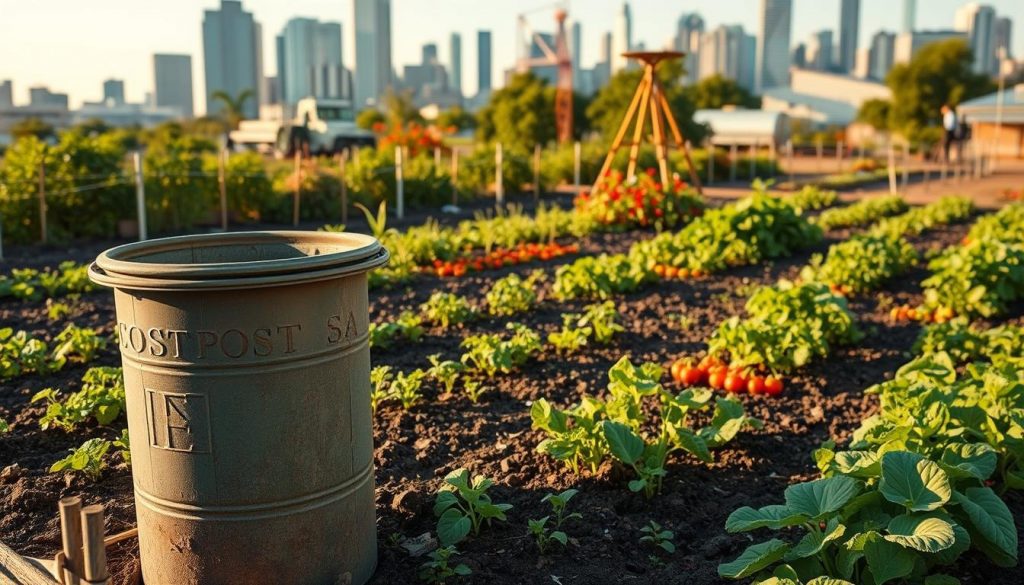
Conclusion
Composting in an apartment might seem challenging at first, but with the right tools and mindset, it’s entirely doable.
Countertop compost bins like the Chef’n EcoCrock make it easy to start.
Urban composting programs and local recyclers provide convenient options for those who want to outsource the process.
Remember, every little bit helps. By composting, you’re contributing to a healthier planet. So, why not give it a try?
Whether you choose to manage it yourself or rely on community programs, you’re making a positive impact. And who knows, you might even inspire your neighbors to join in!
So, are you ready to start composting in your apartment? With these tips, you’re well on your way to becoming an eco-friendly urban composter.
Happy composting!

